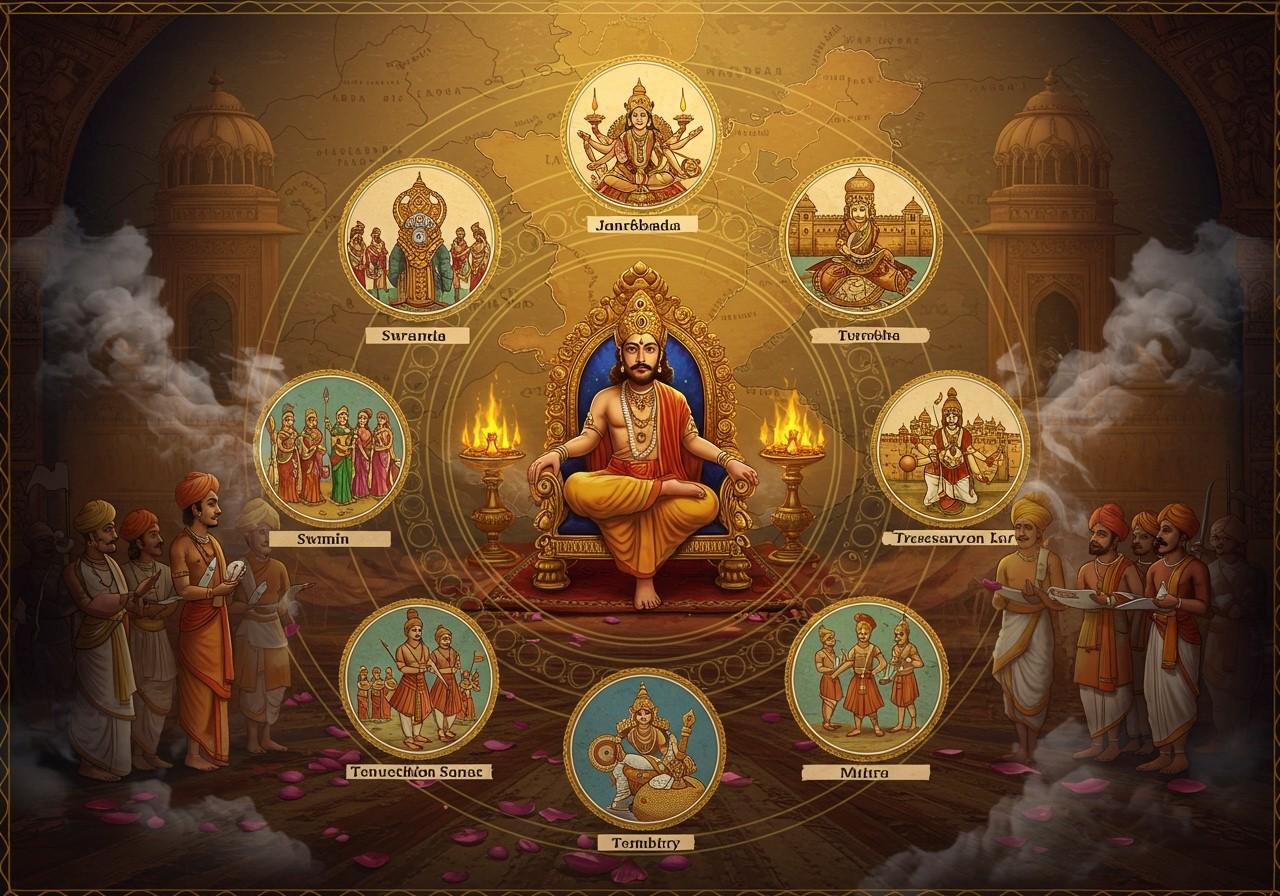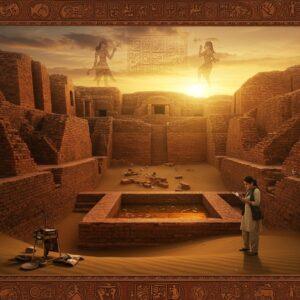
Kautilya, also known as Chanakya, a prominent figure in ancient Indian history, was a philosopher, economist, and statesman. His renowned treatise, the Arthashastra, delves into statecraft, economic policy, and military strategy. A cornerstone of this work is the Saptanga Theory, which elucidates the seven indispensable elements that constitute state power. This theory remains remarkably relevant even today, offering valuable insights into the dynamics of governance and stability.
Historical Context of the Arthashastra
Kautilya lived around the 3rd century BCE, during the Maurya Empire, significantly contributing to Indian philosophy and statecraft. The Arthashastra, a pivotal text in ancient Indian literature, has profoundly influenced subsequent political thought. Reflecting the socio-political landscape of ancient India, it offers a comprehensive guide to governance. Rediscovered in the early 20th century by R. Shamasastry, the Arthashastra continues to impact modern political science and economic theories.
Kautilya’s Saptanga Theory: An Overview
Central to the Arthashastra is the Saptanga Theory. ‘Saptanga’ translates to ‘seven limbs’ or ‘seven elements.’ These interconnected elements, as defined in the Arthashastra, are: Swami (the King), Amatya (the Ministers), Janapada (the People and Territory), Durga (the Fort), Kosha (the Treasury), Danda (the Army), and Mitra (the Ally). Kautilya’s holistic approach integrates political, economic, and military strategies, emphasizing their interdependence in achieving a powerful and stable state, much like a living organism.
Swami (The King)
In Kautilya’s theory, the king holds a central position. A just and effective ruler must embody intelligence, integrity, and decisiveness. The king’s responsibilities encompass protecting the state, upholding justice, and ensuring the welfare of the subjects. The king’s personal conduct significantly influences the state’s prosperity, with adherence to ‘Dharma’ (righteousness) being paramount. Advisors and ministers support the king in governance, maintaining law and order and fostering economic development.
Amatya (The Ministers)
The Amatya, or ministers, play a crucial role in administration. A competent minister should be loyal, skilled, and wise. Their duties include policy formulation, implementation, and providing counsel to the king. A strong collaborative relationship between the king and the ministers is essential for effective governance. The selection of ministers based on merit ensures an efficient administrative structure.
Janapada (The People and Territory)
Janapada encompasses the state’s territory and its population. Fertile land, abundant natural resources, and a skilled populace are essential for a thriving state. Strategic locations along trade routes further enhance state power. Social harmony and public welfare are critical for maintaining a productive population. A robust economy is built upon thriving agriculture, trade, and industry.
Durga (The Fort)
Durga represents a fortified city serving as an administrative and military hub. Well-designed fortifications safeguard against external threats. Strong walls, secure gates, and robust defense mechanisms are vital components of a secure fort. Effective urban planning ensures functionality and security within the city, and a disciplined military presence reinforces its strength.
Kosha (The Treasury)
Kosha signifies the state’s treasury, a cornerstone of economic stability. Revenue streams include taxes, tributes, and trade profits. Prudent financial management ensures a healthy treasury, which in turn supports public works, defense initiatives, and social welfare programs. Sound economic policies are essential for state prosperity.
Danda (The Army)
Danda represents the state’s military force. Discipline, rigorous training, and unwavering loyalty are the hallmarks of an effective army. A strong military deters external aggression and maintains internal order. The army safeguards the state’s territory and interests. Different branches, such as infantry, cavalry, and navy, fulfill specific roles within the military structure.
Mitra (The Ally)
Mitra denotes allies and the importance of diplomatic relations. Alliances provide mutual support, open trade opportunities, and offer strategic advantages. Trust and reciprocity are essential for enduring alliances. Diplomacy plays a vital role in forging these partnerships. Skillful management of alliances is crucial to navigate potential conflicts of interest.
How Poojn.in Supports the Seven Elements
Poojn.in helps uphold the spiritual and cultural aspects of Kautilya’s Saptanga Theory by providing authentic puja items and ritual materials. Here’s how our products align with the seven elements:
- Swami (Leader): Enhance leadership ceremonies and honor royal traditions with Raja Tilak sets, traditional throne decorations, and royal insignia items available at Poojn.in. We offer a wide variety of products to suit different needs and preferences, ensuring a regal and auspicious experience.
- Amatya (Ministers): Support administrative duties and create a positive atmosphere with consultation room purification items, decision-making ceremony materials, and office blessing kits. Find everything you need at Poojn.in to foster a productive and harmonious work environment.
- Janapada (People & Territory): Promote community well-being and foster unity with bulk prasad items, community puja materials, and Vastu correction items. Poojn.in offers a diverse selection to cater to various community needs and spiritual practices.
- Durga (Fortification): Enhance protection and security with yantra and kavach, protective religious symbols, and boundary blessing materials. Explore our collection at Poojn.in for a wide range of items to safeguard your home and surroundings.
- Kosha (Treasury): Attract prosperity and abundance with Kuber puja items, Lakshmi yantra, and wealth attraction materials. Poojn.in provides high-quality products to support your financial well-being and spiritual practices.
- Danda (Army): Promote strength, courage, and protection with Hanuman chalisa sets, Kali puja items, and protection mantras. Poojn.in offers a wide selection to help you cultivate inner strength and resilience.
- Mitra (Allies): Strengthen relationships and foster harmony with friendship ceremony items, alliance blessing materials, and diplomatic gift sets. Discover unique and meaningful gifts at Poojn.in to celebrate and nurture valuable connections.
Conclusion
Kautilya’s Saptanga Theory provides profound insights into the fundamental elements of a strong and stable state. Each of the seven elements—Swamin, Amatya, Janapada, Durga, Kosha, Danda, and Mitra—plays a vital role in effective governance. This ancient wisdom underscores the importance of leadership, administration, economic stability, military strength, and diplomatic relationships. By understanding and applying these timeless principles, modern states can strive for balanced governance and lasting prosperity. Kautilya’s teachings remind us that a holistic approach, integrating various facets of statecraft, is essential for enduring strength and stability.
Ramayana Characters and Life Lessons
Andhra Pradesh: A Journey Through Time, History, and Formation


